The 2020 Project: Thinking About Serving Tweens and Teens with Disabilities in Our Libraries
Each year here at TLT, beginning in 2014, we’ve had an over arching theme for the year in which we take a deep dive into an issue that affects the lives of our teens and we consider what it means for us as librarians, how to best serve our teens, and explore the representation of that issue in MG and YA Lit. This year we are going to be discussing disabilities in the lives of tweens and teens, what it means for us as librarians who serve them, and what that representation looks like in the literature.
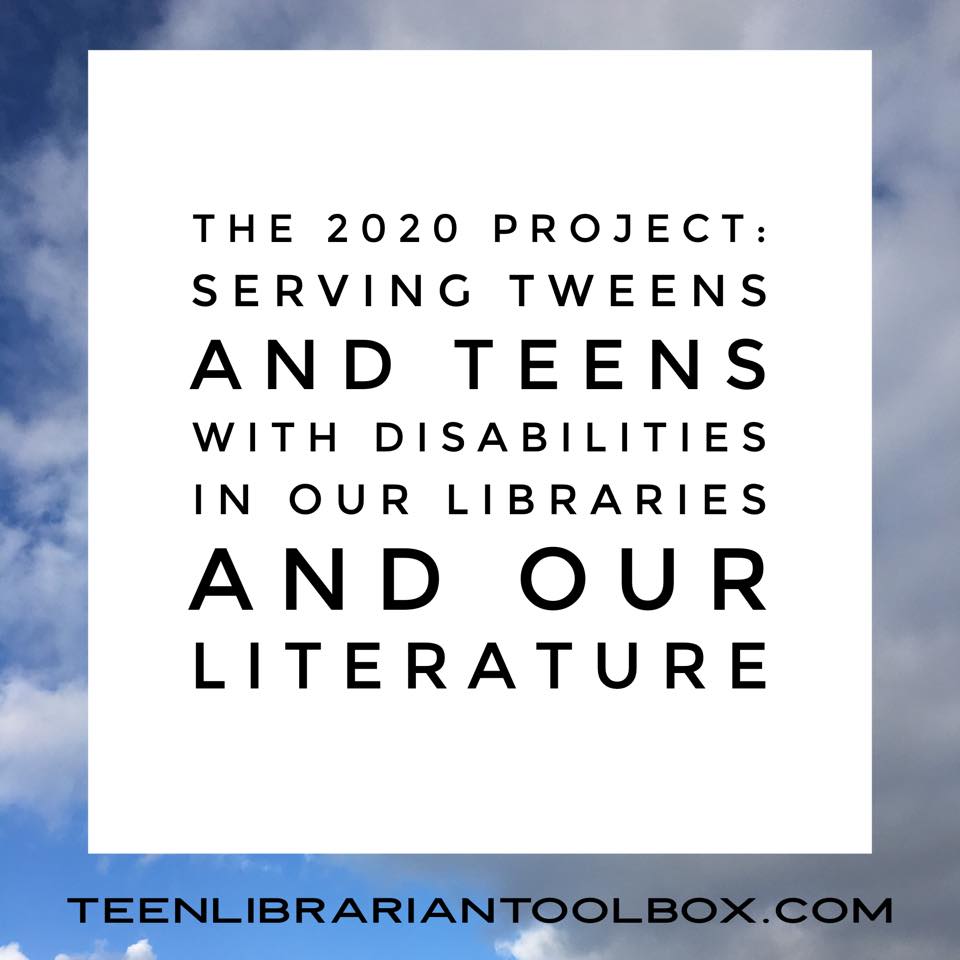
Although every member of TLT deals with disability in some form or another, we are by no means experts in this topic which is why we always host this as a large, group discussion in which we ask you to participate, sharing your knowledge and experience with us as we share ours with you.
ADVERTISEMENT
ADVERTISEMENT
You can see all the previous years of projects here
In 2015, fellow librarian Cory Eckert gave me a gift. I was invited by her and a few other amazing librarians to talk on a panel about diversity at TLA. The day of our presentation I looked to me left and to my right and asked Cory, why did you ask me – a white, cisgender Christian middle age woman, the very stereotype and overwhelming majority of librarianship – to be on this panel? She looked at me and said, well, because you have a disability you’ve been very open about discussing and we wanted to have that representation as well on this panel. I am here to tell you that moment was a gift and a revelation. I struggle with both a chronic illness in the form of hypothyroidism and mental health issues, depression and anxiety, which are made worse since developing hypothyroidism. Having it acknowledged that this impacted my daily life felt like a burden lifted off of me.
In the years since, it has become evident that both of my daughters struggle with their own anxiety issues. In addition, Thing 2, my youngest, has been diagnosed with dyslexia and ADHD, which can make life very challenging for her. I know that I will talking a lot in the coming year about dyslexia, though you can see my posts from October here.
This past year, after a couple of years of very real health issues, doctors finally told us that The Mr. also has a chronic health issue that will effect him for the remainder of his life. They are still searching for a name to put with that health issue but we have been living with it for a while now. We recently sat down with our daughters and talked with them about what it meant for their dad to have a chronic illness and how we would have to work together as a family to communicate about our feelings and how we would have to work on being understanding with one another.
At the most basic level, a disability is defined as “a physical or mental condition that limits a person’s movements, senses, or activities ” – Google Dictionary. Disabilities can be both seen and unseen, which means you never know if the person that is standing before you is struggling with a disability or not. In my 26+ years of librarianship, I have heard very little discussion about best practices when it comes to working with our patrons that have a disability. It seems that most libraries do the bare minimum, which is try and maintain three feet of clearance for wheelchair access and if we’re being honest, some of us aren’t even doing that very well.
Our goal in the next year is to talk about disability in general, to talk about specific types of disabilities and how libraries can better serve patrons living with those disabilities, and to look specifically at disability representation in MG and YA literature. We are certainly not the first or only people doing this work, there are lots of great resources and blogs out there and we will be referring to them over the course of the next year. And we hope that you will choose to join in the conversation by writing a guest post, putting together a book list, or sharing your own favorite programs or resources.
If you would like to participate a little or a lot, email me (kjensenmls@yahoo), Amanda MacGregor (amanda.macgregor@gmail) or Robin Willis (robinkwillis@gmail). We would love to work with you to raise awareness, break down stereotypes and stigmas, and learn more about how libraries can better serve patrons with disabilities.
Filed under: Uncategorized
About Karen Jensen, MLS
Karen Jensen has been a Teen Services Librarian for almost 30 years. She created TLT in 2011 and is the co-editor of The Whole Library Handbook: Teen Services with Heather Booth (ALA Editions, 2014).
ADVERTISEMENT
ADVERTISEMENT
SLJ Blog Network
At Last! Mr. Schu on The Yarn Podcast
Fuse 8 n’ Kate: Ginger Bear by Mini Grey
Exclusive: Giant Magical Otters Invade New Hex Vet Graphic Novel | News
Parsing Religion in Public Schools
ADVERTISEMENT



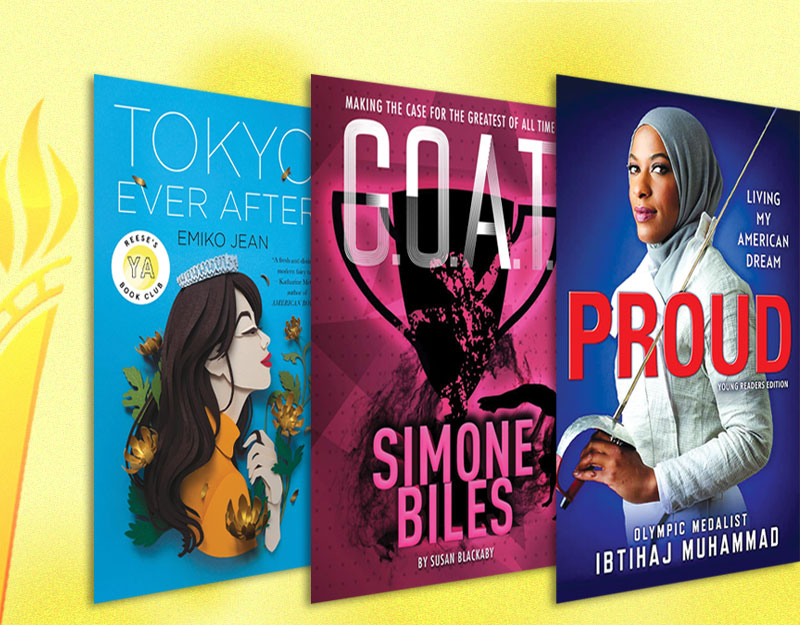
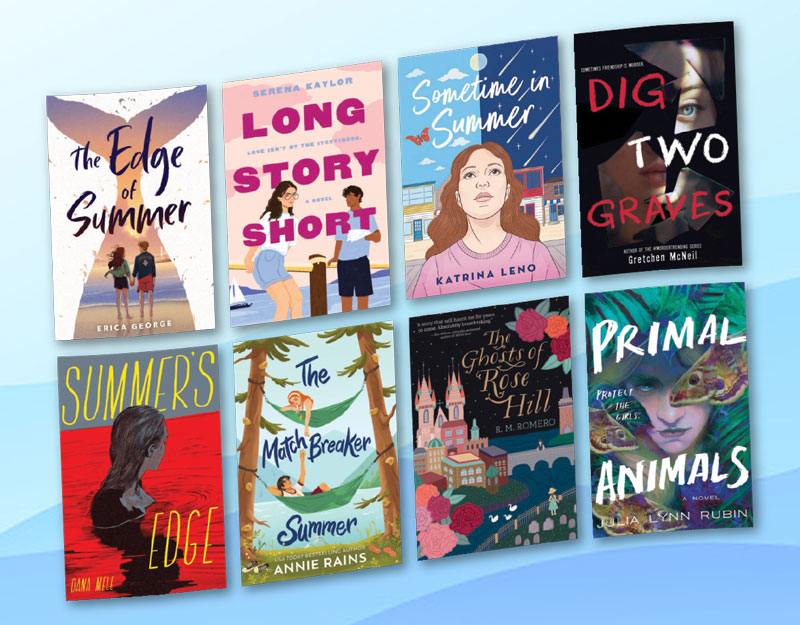
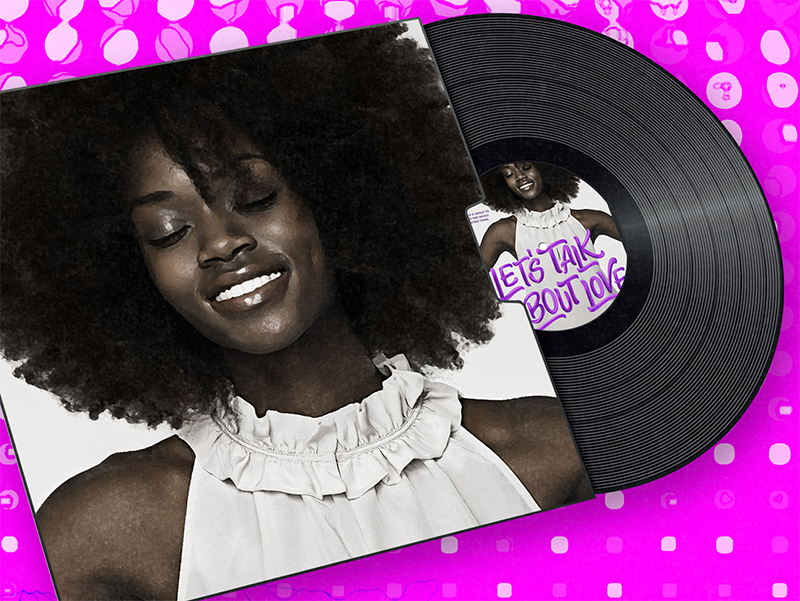
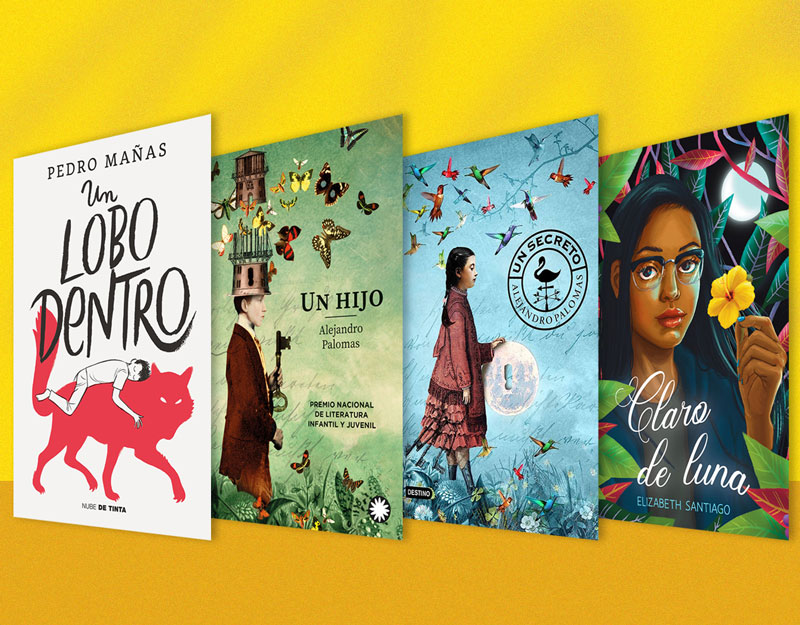
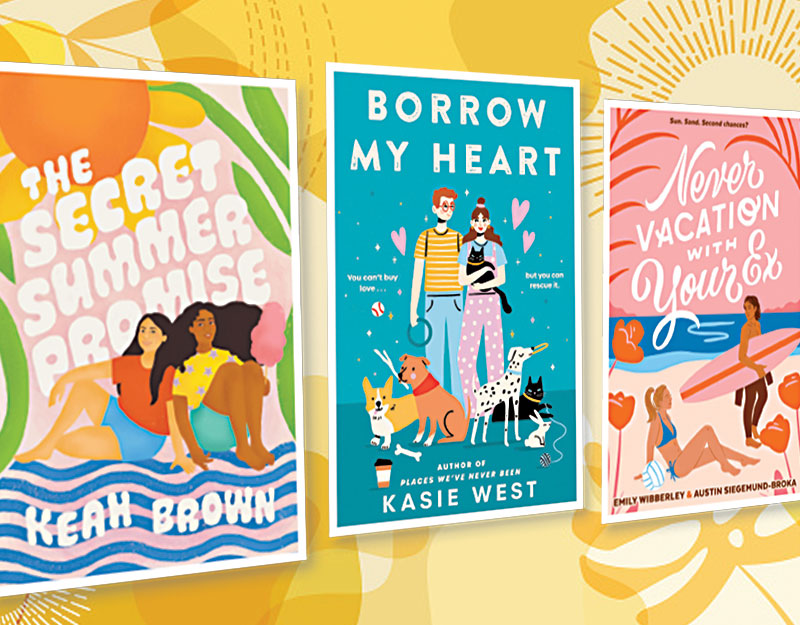
Last night I read Christina Collins’ intermediate/middle grade novel After Zero. Selective mutism and anxiety are important themes in this 2018 publication. I highly recommend this title to your list of books. The author’s own struggle with selective mutism and anxiety in her adolescence enables her to craft a three dimensional main character whose thought processes reveal her inner struggles. The author also addresses differing levels of mutism in notes in the back matter. Both students and teachers will gain understanding of selective mutism as well as empathy for those who struggle with the condition. Students who share this struggle will thrill to find a book in which they can see themselves represented.